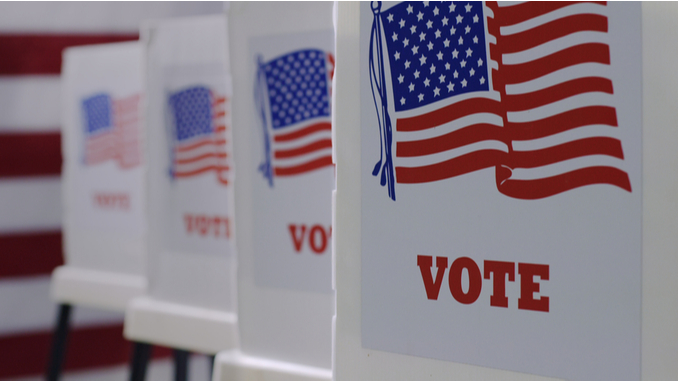
Ranked-Choice Voting Could Come Back To Bite Alaska Republicans … Again
By Suzanne Downing |
Rep. Mary Peltola continues to have support among left-leaning American politicos, after emerging victorious in Alaska’s messy open-primary, ranked-choice general voting system in 2022.
Conservative Alaska voters, faced with a contentious field last year, awarded Peltola enough second-place votes to lock in her win.
As a candidate with low name recognition, Peltola committed to bipartisanship, saying she drew inspiration from the late Congressman Don Young. However, her voting record since November has revealed a different story.
Peltola’s support for Rep. Hakeem Jeffries as House speaker, casting 15 votes in his favor, was the first big item that raised eyebrows around the 49th state.
She voted against the Strategic Production Response Act and justified her absence during the final vote by claiming she was unaware voting was about to occur.
Peltola voted against the censure of Rep. Adam Schiff, who was the unethical impeachment manager for Speaker Nancy Pelosi during the now-discredited “Russia collusion” attack on former President Donald Trump.
Recently, she joined most Democrats in opposing the National Defense Authorization Act. The rationale behind her “no” vote lies in her desire for culture-war earmarks to fund military transgender treatments and surgeries, as well as paying military women a month of leave for late-term abortions. Peltola has also supported transgender males’ participation in female athletic competitions.
She voted against H.R. 5, the Parents Bill of Rights, and has been advocating for a national railroad strike, urging Starbucks baristas to unionize, and encouraging pizza workers in Alaska to do the same.
Peltola’s consistent absence is notable: She has missed 16 times more votes than the median Democrat House member. In a House with 435 members, she is number 12 for most missed votes.
While she participated in the women’s Congressional Softball game against journalists, she failed to show up for work the next day when almost all amendments to the National Defense Appropriations Act were voted on. Her inability to get out of bed deprives Alaskans of a voice in the House.
When she does vote, Peltola votes in line with Rep. Nancy Pelosi 84% of the time, Rep. Ilhan Omar 77%, and Rep. Alexandria Ocasio-Cortez 78%. Keep in mind that 53 percent of Alaskans voted for Trump.
Nick Begich, a lifelong Republican who ran for Congress in 2022, has seen enough. He decided to run again after witnessing Peltola repeatedly vote against Alaska’s values.
Although he faces the challenge of overcoming his relatives, who include well-known Democrats, Begich enjoys the continued support of his followers.
But Alaska’s unique method of selecting representatives, introduced with Ballot Measure 2 in 2020, deviates from the rest of the nation. It’s a tangled mess.
The open primary format eliminated the Republican Party of Alaska’s ability to independently choose its candidate for the general election.
Instead, all candidates, whether clowns or statesmen, participate in the same primary ballot. In 2022, this resulted in a massive ballot with 48 candidates.
The top four vote getters from the primary advance to the general election, where voters are then asked to rank the candidates in order of preference. If a voter’s preferred candidate loses, their vote is transferred to their next choice, granting them an opportunity to vote again. In this scheme, some voters get to vote more than once, while others’ votes are counted just one time.
Given the array of choices Alaskan voters had in November, which included three conservatives and one liberal candidate selected in the primary, it remains perplexing how a radical like Peltola emerged victorious.
Supporters of ranked-choice voting had promised that the system would eliminate extremists, but this is not how it worked in real life. Alaskans ended up with a de facto member of The Squad.
Will it happen again?
Begich begins his campaign with a solid base of one quarter of the likely vote this time around. However, with less than a year remaining until the primary ballot is set in Alaska, a lot can happen with campaign hijinks, as we saw in 2022.
Last year, Begich garnered support from major conservative organizations like Americans for Prosperity and Freedom Works for America, as well as the endorsement of the Alaska Republican Party.
And yet, the National Republican Congressional Committee (NRCC) is not structured to work well with the ranked-choice voting system, which in a state like Alaska all but guarantees the presence of multiple Republicans on a general election ballot.
This time around, the NRCC can and should focus on highlighting Peltola’s extreme positions to ensure that Alaskans can make a more informed decision in the upcoming 2024 primary and general elections.
For now, Alaskans are represented by a bait-and-switcher who holds some of the most mind-boggling positions in the history of the U.S. Congress. Alaska has the distinction of being the most conservative district in the country to be represented by a Democrat. We can do better.
National organizations like the NRCC, Freedom Works, Americans for Prosperity, and Club for Growth will be crucial in helping prevent a recurrence of 2022’s series of unfortunate events.

Originally published by the Daily Caller News Foundation.
Suzanne Downing is a contributor to The Daily Caller News Foundation and publisher of Must Read Alaska.


